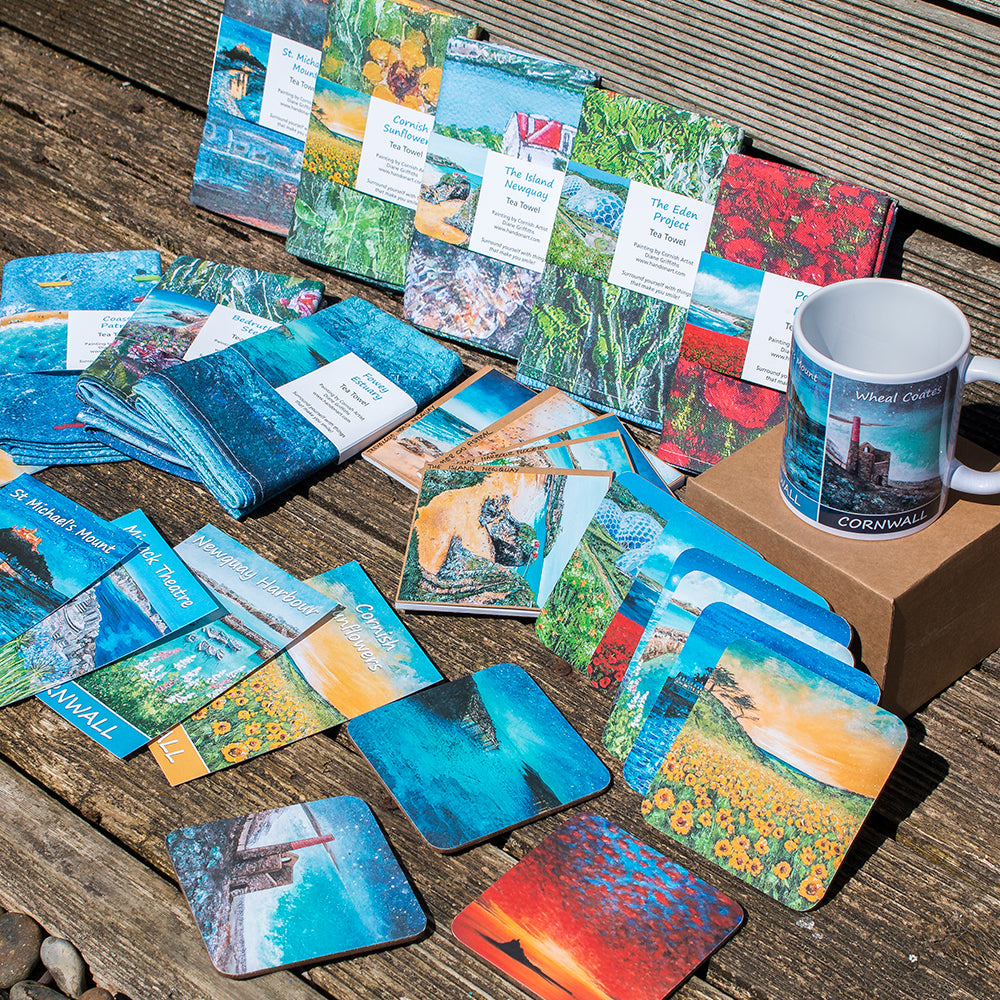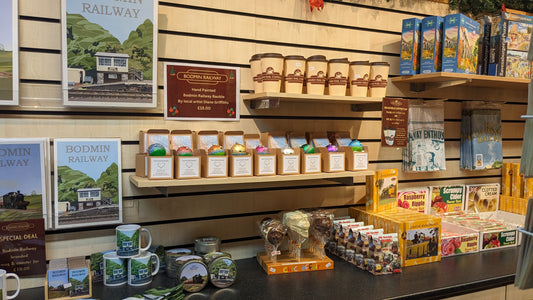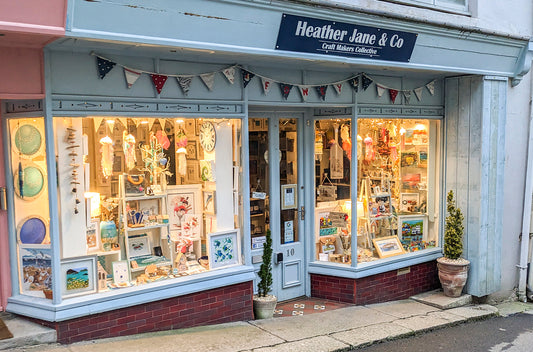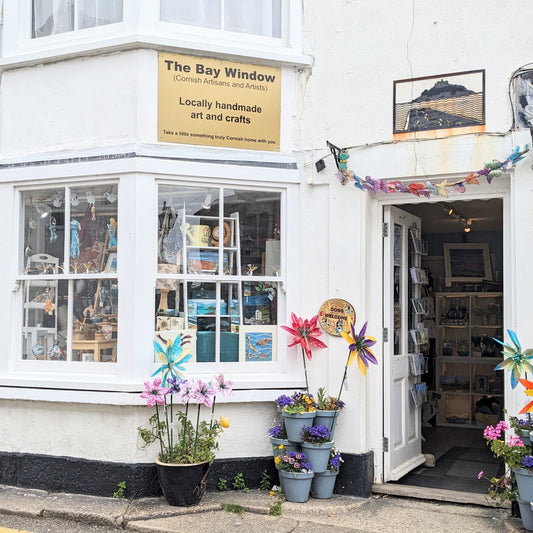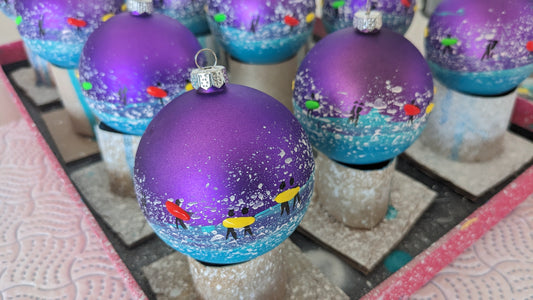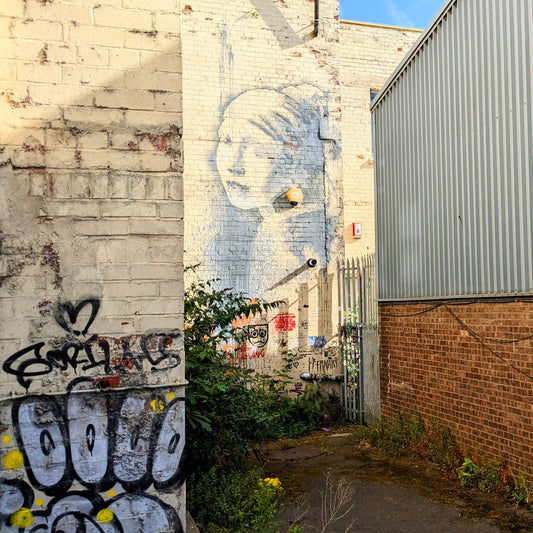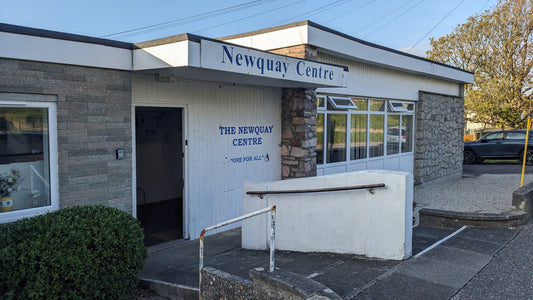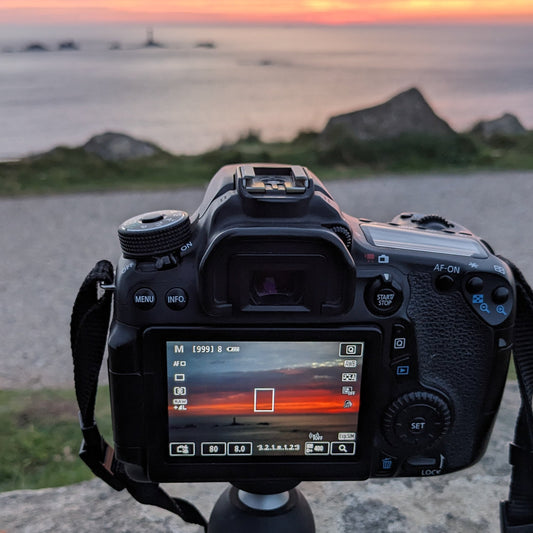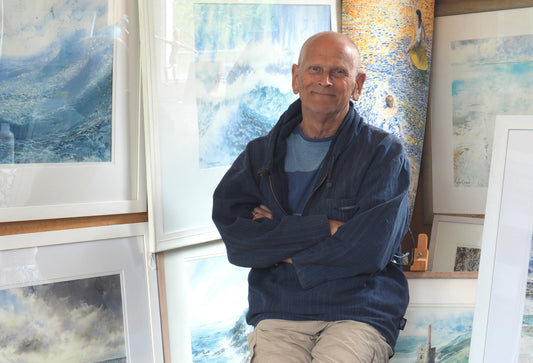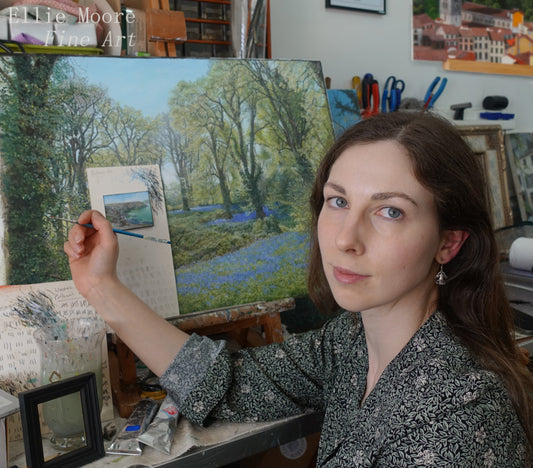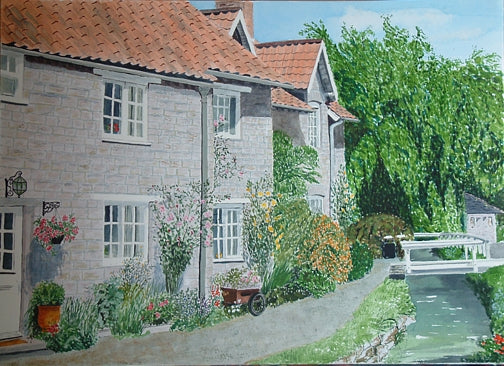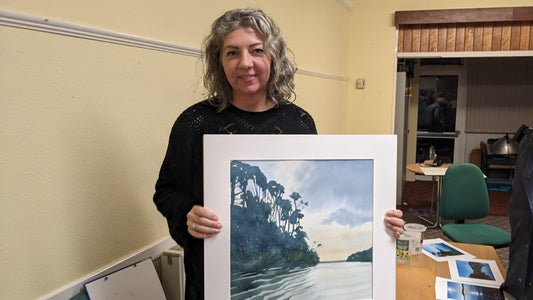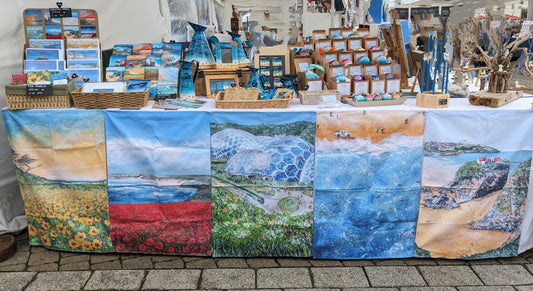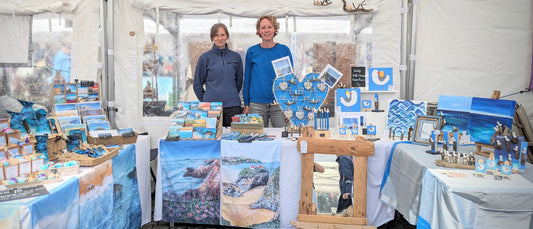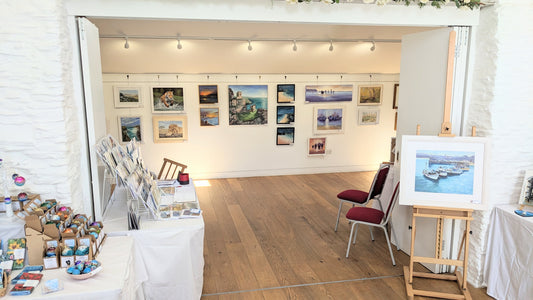Artist Interview - Ellie Moore
Share
Ellie is a master of the world of miniature painting, a world I was vaguely aware of but didn’t appreciate the intricacies (pun intended) of how much was involved in this format.
On 14th November 2023 I met Ellie when she carried out a demonstration at the Newquay Society of Artists. I really enjoyed discovering more about miniature painting and could very much relate to quite a lot of what she was saying and her approach to painting.
Miniature composition has to be very strong to pull you in, but it also has to withstand magnification. It’s a challenging methodical process with buckets full of patience required, and yet as Ellie explains it, you can still appreciate the creativity she brings to the table. I wanted to find out more!




I think from childhood most people around me thought I’d end up with a creative career – I was always encouraged to make things, being given art materials for my birthdays, and my parents house is littered with childhood projects – I think Tracey Island’s still in the attic!
A gem of a job at a gallery/picture framers in my teens let me sample curation, restoration, framing and showed me how art can become a business. It was the first platform to sell my work from – I had so much encouragement, and actually a sales record that I’d be happy with now, that I thought about taking it seriously for the first time.
Most higher art education in the UK is concept-based, and features more installation, multimedia and performance art than I liked the sound of – I wanted nuts and bolts painting education! So I was extremely lucky to spend a month at the Florence Academy of Art studying traditional oil painting from the ground up.


Still feeling I needed a degree behind me from a good uni, I studied Fine Art at Lancaster, although it nearly derailed my art career as I came out with my 1st and immediately pursued medicine! After a rewarding stint as a carer, and some chemistry and physics, the U turn became a circle and I landed back in the art world – where I belong.


2 - You clearly excel at painting miniatures, they are outstanding. Seeing them in real life also gives them an extra dimension that you can't appreciate when you view them online - what is it about this form of painting which captures your imagination?
Thank you very much! It started with an experiment really, but now I’m fascinated by them – some subjects just cry out to be a miniature; it turns them into something distilled, more jewel-like, and enhances that ‘portal’ quality that paintings have. And it pulls out the intricacy in the subject – even steel girders become like fine lace on a miniature scale.
I think some people associate them with dolls houses and twee, but for me being able to hold a painting in the hand, and to look closer and the illusion doesn’t break down into brushstrokes, gives the subject a certain quality...a kind of concentrated power, and unlike large paintings, it’s totally private. A visitor to my last solo show said the miniatures are ‘like haikus’ – I loved that! And I love the challenge of painting them too.



I’m always proudest of paintings where I’ve had to invent things – because with realism, it’s much harder than working straight from life or a photograph!
My ‘Wells Cathedral, Circa 1250’ stands out for me – just for the scale of the ambition. It was such a huge undertaking - even though it’s 10cm wide! For some reason I wasn’t content to paint the Cathedral as is now, in just plain stone, which would have been plenty of work. Instead, after discovering in the local museum that the whole of the outside was once brightly painted and gilded, I wanted to see for myself what it might have looked like some 800 years ago. So I thought I’d paint it...and since I imagined it looking like a colourful jewel, I thought a miniature format would enhance that precious effect.
Apart from a couple of tantalising mockups in the local museum, I relied on a brilliant book by archaeologist Jerry Sampson about the pigment traces found on the West Front. To the best of my ability, I painted each niche, canopy, quatrefoil etc in the right colours, and deciphered the bewildering history of architectural changes, to get everything in the right decade! Then I went the whole hog and made the frame from scratch, complete with spandrels – because, at that point, why not...


I could tinker forever! There’s always something more I could do to it – more refining – but for every piece there’s a point where to go further will make no difference to anyone else when they see it, it’s reached its maximum impact - and that should be my stopping point! When I return to a painting, I scan my eyes over it and they kind of catch on things that need tweaking. But when it’s all working together – when I come into the studio and it convinces me on the easel, when it’s got it’s own life, it’s own presence, then I add my signature.
5 - This next question is a tricky one, but it's one I've been pondering for a while. How do you define success as an artist?
This is a tricky one! I think for me it might be to be making as many paintings as possible – i.e. to paint full time, i.e. to make a living out of it. I buy myself time to make more paintings, with paintings, if that makes sense! But of course the intensity of painting full time and needing to make it pay is very stressful, especially when each painting is an investment of so many hours – so there is a balance to be struck. If I can paint well while enjoying my work and making enough to live on, that’s success.

6 - Inspiration is an important part of creating art, but also so its evolving and growing as an artist. How do you develop your art skills?
I feel like I learn heaps from each subject – I feel like a beginner a lot! Every new subject is a learning curve and sometimes I have to use a new technique – for instance recently I had to channel a watercolourist as the luminous leaves of a Bay Grape plant needed a glazing technique, planned from the first layer to the last, when normally I work with opaque acrylic. There isn’t a lot of time for experimentation as each piece takes a long time – and so ideally everything I make should be saleable! But when I can make slightly more daring pieces, I like to push what I can do, i.e. I’ll have an idea for a piece or a frame but I’m not yet sure how to realise it (right now I keep thinking about making a carved frame with lichen dripping from it - I’ve no idea if I’ve got the skills, but that won’t stop me trying!)
My website is a sort of online gallery, and the best place to find out more; you can sign up to my newsletter which keeps you up to date with new work and exhibitions, and exclusive things you won’t find on my social media.
For more frequent updates and work-in-progress/how its made etc, follow me on Instagram and Facebook. And of course, please do drop me an email at elliemoore_fineart@outlook.com – I’d love to hear from you!
I love this interview - Ellie has a very analytical approach to devising her painting, yet it’s more about mapping out the picture instinctually; knowing where to push and pull, to understand what it’s going to take to make it special. I particularly relate to the part about stopping when you know that the changes you are making will make no difference to anyone else - it's reached it's maxium impact. That's a great way to describe the stopping point and I'm definitely going to take that tip on board!
She creates something realistic and yet more than a photo. I really enjoyed her sentence, "even steel girders become like fine lace on a miniature scale," that is brilliant imagery and really captures the essence of that scaling down process. Her work always astounds me, it's completely eye catching and breath-taking, and to have that impact with such a small scale painting, now that's a talent and a little bit of magic!
Thank you Ellie!

